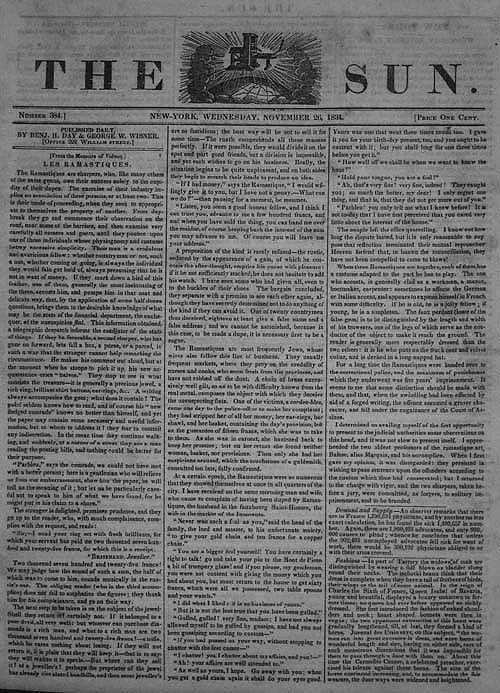Tim Wu, a law professor at Columbia University, is perhaps best known for coming up with the phrase “net neutrality.” In his last book, The Master Switch, Wu traced the history of modern communications and media consolidation. In his new book, The Attention Merchants, Wu delves into the history of advertising, propaganda, and media. Wu writes a history that begins with Benjamin Day’s idea to sell his paper, The New York Sun, for less than the cost of production and make up the difference through advertising; now, ads are even displayed in public schools.
Many media companies — including this one — aim to attract the attention of readers or viewers. That attention is then directed, at least theoretically, toward the ads the company serves. That model has expanded, however, with companies that consider themselves the tech sector — like Google or Facebook — borrowing the media model of serving ads to a captive audience, either through search results or through your social media feed. Ad tech has come a long way since 1833! I spoke to Wu about the long view on advertising, the role of propaganda in politics, and the rise of celebrity culture.
This interview was condensed and edited for clarity. It also took place before the presidential election on Nov. 8.

The New York Sun’s November 26th, 1834 front page.
Public domain
I wanted to start by talking about what I came to think of in reading your book as the original sin of news, which was The New York Sun in 1833. I think is the first ad-subsidized newspaper, is that right?
As far as I know.
It was a cheaper way of producing papers so that more people would buy them, right?
It’s the model that has gone on to form everything in so much of our lives, which is giving away something at very low cost to free, and then hoping you’ll gain enough of an audience that you can resell the audience and make money that way. That’s why I call Benjamin Day the first attention merchant. I think it was the original sin, and he was the first to do it.